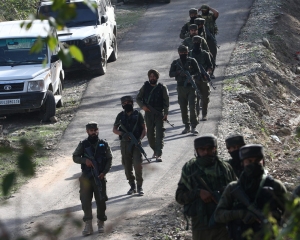Sabyasachi Mohapatra is known for his internationally acclaimed film Bhukha. He directed his first feature film Sabu Maya re Baya in 1986. Bhukha in the Koshali had got International Jury Award at Gijon Film festival, which bought him instant fame and recognition.
He then did films like Jhili, Bou and Bahudibe Mo Jaga Balia. His mega budget mythological film Jai Jagannath was released in 15 different Indian languages.
Director Mohapatra is now back with Sala Budha, another movie in Koshali language set on a rural background and focused on the plight of the aged people in villages in the western part of the State. The film is based on a short story written by Kapil Prasad Mohapatra (his father). Most important is the huge team efforts that has gone into making the film, a team mostly consisting of one family of six brothers — all devoted religiously to the profession of filmmaking. All are talented technicians in their own rights. The film has been selected for the Indian Panorama, 2013 and will be showcased in the 44th IFFI to be held in Goa from November 20 to 30 next. Mohapatra shares exclusive details about his film with Ashok Palit.
After 25 years, you returned to Samabalpuri film. Why such a long gapIJ
Bukha in Sambalpuri was highly appreciated and won the award at the 28th Gijon International Film Festival, Spain and was shown at France’s Aurillac World Rural Film Festival. One thing all our six brothers had realised then was that though they were very reach in content, conviction and talents, but very poor in technology. Film is a medium of technology. It’s an audio visual medium which is totally dependent on techniques and technology.
What step was taken by your family membersIJ
As a first step, our third brother Chintu quit a bank manager job and shifted to Mumbai and joined with Shyam Benegal as an Assistant Director in June, 1991. He learned the art of film making with eminent directors like Shankar, Santosh Sivan and Mani Rathnam etc. After a few months, the fourth brother Mantu, post completion of his diploma at the Utkal Sangeet Mahavidyalaya came to Mumbai and joined highly respected and maximum national award winner production designer (Art Director) late Sameer Chanda as an Assistant Art Director .
The fifth brother Rajendra (Raju), after completion of double MA in Psychology and library and Information Science and M. Phil in library and Information Science at Delhi University shifted to Chennai and joined eminent editor Sreekar Prasad to learn film editing. later, he opened the First AVID Editing Studio at Bhubaneswar. Subsequently, he shifted to Mumbai and joined famous Rajtaru Studios to explore his skills. Prakash, the sixth and youngest brother after completion of his MA at Delhi University shifted to Mumbai to learn cinematography. He joined eminent and mainstream DOP Nazib Khan as an assistant and continued with him as an associate till Santosh Sivan and film star Shahrukh Khan selected and sent him abroad to learn the Remote Control Camera Crane Operation (Jimmy Jib) to introduce the new technology in India. Thus, Prakash became the first Indian to operate Remote Control Camera Crane in India.
Even your family’s second generation members have also taken active part in the film Sala Budha. Is it trueIJ
The second generation members, who are active in the project are son of Sabyasachi, Kumar C Dev as associate director of the film, daughter of second brother Sushant, Shoba as chief assistant director and in- charge of costume of the film, son of third brother Chintu, Bulang as post production supervisor, elder son of the fourth brother Mantu, Huentsang as second unit cameraman.
Why did you decide to make the film in black and whiteIJ
As it is a period-specific film, so I decided to make it in black and white instead of colour. Oscar Award winning movie The Artist was too made in black and white, which inspired me a lot to go in for black and white.
Who is the inspiration behind story of SalabudhaIJ
Sala Budha is based on short stories written by my father Kapileshwar Mohapatra, which were published in the book Sala Budha. Mohapatra is a devout humanitarian and strict Gandhian. So, all his writings are reflection of human values and simplicity. All stories are his personal experiences. He often described him as a Sala Budha.
What message do you want to give through this filmIJ
The film is a tribute to senior citizens and the ageing population of India on the occasion of cinema in India celebrating its 100th year. I think India’s future rests on the strength and faith of people like my hero in Sala Budha. Instead of looking at elderly people as liability by the younger ones, Sala Buddha has a subtle message for the present fast pace society.























